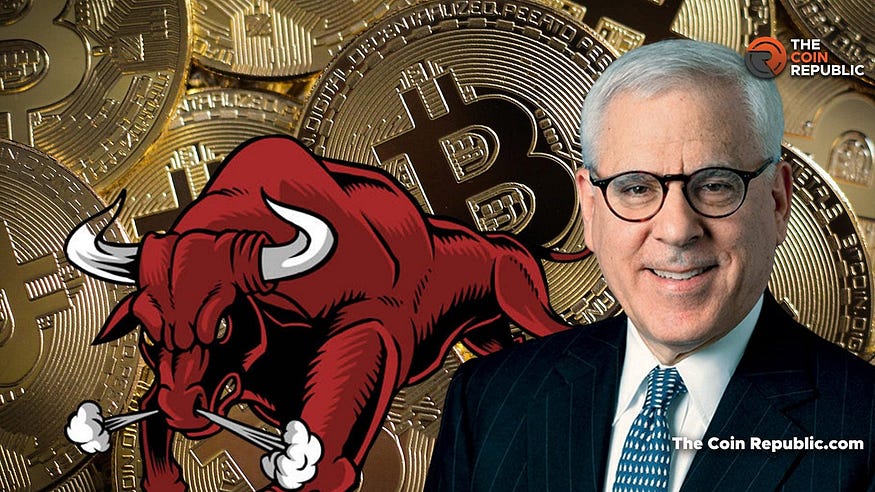Adoption and Acceptance are Happening Everywhere
Bitcoin’s price, following a crazy, parabolic run in 2021, has come back to earth this year. We all know that. It’s taken the same path as stocks. Things go up too far, too fast, and what happens? They correct. If you zoom out a bit, you’ll realize that Bitcoin’s price has risen exponentially over the last twelve years.
But it’s hard to be bullish on an asset class when it’s in a “bear market.”
If a stock you own is in a down market, you need to look to the fundamentals. If prospects are good, revenue is growing, management is solid, then you probably stay the course with it.
It’s very similar to Bitcoin. Are the use and acceptance of Bitcoin growing? Are countries coming to grips with cryptocurrencies and adopting some sensible regulations? Are innovations happening in the space? Innovations that improve the speed, safety, and custody options for crypto?
That’s what we should focus on. Here’s just a sampling of the bullish news out there involving Bitcoin.
1. Another Nation Adopts Bitcoin as Legal Tender
This week marks the first anniversary of the nation of El Salvador’s first purchase of Bitcoin. The country bought 400 coins for about $20 million on September 7, 2021, and then made Bitcoin a legal currency the next day. President Nayib Bukele has since spearheaded large-scale Bitcoin mining, using geothermal energy. Citizens were given Bitcoin wallets, and merchants are accepting Bitcoin.
Now another nation has followed suit. The central African Republic, a nation of about 5.5 million people, adopted Bitcoin as a legal currency of the country this spring. It also legalized the use of all cryptocurrencies. It’s a way of “banking the unbanked.”
It’s a trend that may pick up steam. Bitcoin allows many countries to bring more citizens into the financial system, as many developing nations have more cellular phones than bank accounts.

2. New UK Prime Minister is Bullish on Crypto
Following the resignation of Prime Minister Boris Johnson, the Conservative Party in Great Britain appointed Liz Truss to take over the nation, currently amid quite the economic crisis. Double-digit inflation, two-quarters of recession, and fuel shortages are devastating the British Isles. Quite a time to take the reins. No pressure, right?
Truss’ appointment quickly drew the praise of Bitcoiners and crypto proponents. Up to this point, Britain had been rather skeptical of crypto, similar to the US. Focusing mainly on the ability of bad guys to use crypto for illicit purposes, the UK has not been a champion of the innovation potential of cryptocurrencies.
The new PM seems to have a different focus altogether. Her campaign in recent years has been to “unleash Britain’s potential.” When the UK’s Financial Conduct Authority pledged in 2021 to tighten regs on crypto, many cutting-edge digital and blockchain projects fled for friendlier nations. Prime Minister Truss tweeted in 2018 that she wants the UK to “liberate free enterprise” and not “constrain their potential.”
That’s very bullish, for the UK and the world.

3. IMF Reports That Crypto Has Gained a More Mainstream Acceptance
The International Monetary Fund (IMF), has published a report titled “Regulating Crypto: The right rules could provide a safe space for innovation.”
The IMF is calling for a global response to regulating crypto, fearing that a disjointed effort will slow innovation. Looking to protect investors and promote consumer confidence, the IMF wants a coordinated effort, with the result being orderly markets in crypto assets.
When a worldwide organization encourages an environment for crypto to flourish, this is bullish. Extremely, in my opinion.
4. Congressman Says Crypto Has Too Much Money and Power Behind it to be Banned
Crypto’s Trillion Dollar market cap means something after all.
I’ve been saying this for a while. Bitcoin has gotten too big to fail. There is so much money invested in the asset, by extremely smart, wealthy, successful people, that it’s hard to imagine it failing.
Rep. Brad Sherman (D-CA) told the LA Times recently, “I don’t think we’re going to ban crypto any time soon.” Sherman went on, “We didn’t ban it at the beginning because we didn’t realize it was important, and we didn’t ban it now because there’s too much money and power behind it.”
More and more people in Washington are coming around. Again, bullish.

5. Tens of Thousands of Companies Accept Bitcoin Payments
That’s right, not a typo. A 2020 survey found that 36% of small and medium businesses in the US accepted Bitcoin. And it’s grown from there. Major companies accept Bitcoin, too. Not Amazon, not yet, but many of the big guys, household names. Here’s a partial list:
1. Microsoft
2. AT&T
3. Wikipedia
4. Burger King
5. Overstock
6. Subway
7. Pizza Hut
8. AMC
And that’s just a small sample. All major political parties accept Bitcoin donations, as do all major charities. In all, more than 15,000 businesses accept Bitcoin. In addition, there are over 37,000 Bitcoin ATMs in the US alone.
6. Russia Will Legalize Crypto in International Trade
The eleventh largest national economy in the world is moving closer to legalizing cryptocurrencies for international trade. The importance of this cannot be overstated. The Bank of Russia and the Ministry of Finance have reportedly agreed that “it is impossible to do without cross-border settlements in cryptocurrency,” per the news agency TASS.
This is a major shift from just last year. President Vladimir Putin was quoted as saying, “I believe (Bitcoin) has value, but I don’t believe it can be used in the oil trade.”
The world is waking up to the use cases of cryptocurrencies.

7. Investors in India Believe Crypto and Bitcoin are the Future of Finance
The world’s fifth largest economy, and third largest by purchasing power, is moving into crypto in a big way.
A survey by the crypto exchange Kucoin revealed that 56% of investors in India believe that crypto and Bitcoin are “the future of finance.” Now, that sounds very bullish, coming from a country with 1.38 billion people.
Over 15% of India’s citizens currently hold Bitcoin or another crypto. One in seven people. That’s major.
8. BlackRock Going Big Into Bitcoin
BlackRock, which manages nearly $10 Trillion in assets, has announced two new ways for its investors to gain access to Bitcoin. They are the world’s largest money manager, so this is huge.
First, the firm announced a partnership with Coinbase, one of the largest crypto exchanges. The venture would allow BlackRock’s institutional clients to buy actual Bitcoin through the Coinbase platform. The move was hailed as significant, as industry watchers believe this could prompt other financial firms to follow suit.
Additionally, BlackRock is starting up its own Bitcoin private trust, similar to the trust managed by Grayscale. In absence of any approved Bitcoin spot ETFs in the US, the trust represents a great opportunity for institutions and individual investors to get Bitcoin exposure.
These moves are quite bullish for Bitcoin, to say the least.
9. Billionaire Bullish on Bitcoin and Possible Regulation
Add to a growing list of billionaires that are invested heavily in the crypto space the Carlyle Group founder David Rubenstein. Worth an estimated $3.3 billion, Rubenstein is the head of a global private equity company.
He also feels that Congress “will not push regulations to do more than they are already doing.”
Rubenstein joins Bill Miller, Elon Musk, Michael Saylor, Cameron, and Tyler Winklevoss as some of the billionaires who are invested in Bitcoin. Says Rubenstein, “I think the industry is not going away.” That’s a common viewpoint among the wealthy and powerful.

10. Largest Singapore Bank Will Expand Bitcoin Offerings
DBS Bank in the Republic of Singapore plans to expand the Bitcoin and cryptocurrency services it will offer to 300,000 of its richest customers. As of the end of 2021, the bank had over $490 billion in assets. They’re the major player in a nation of around 5 million citizens.
In the second quarter of this year, the bank saw a doubling in the number of crypto transactions. CEP Payish Gupta believes that the crypto world needs more established companies to lead the way in offering security services in crypto.


